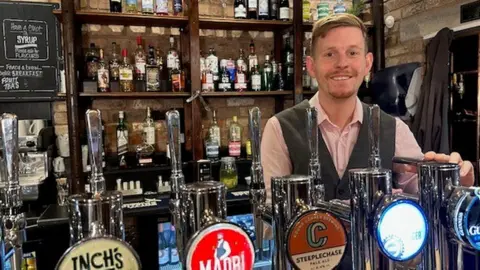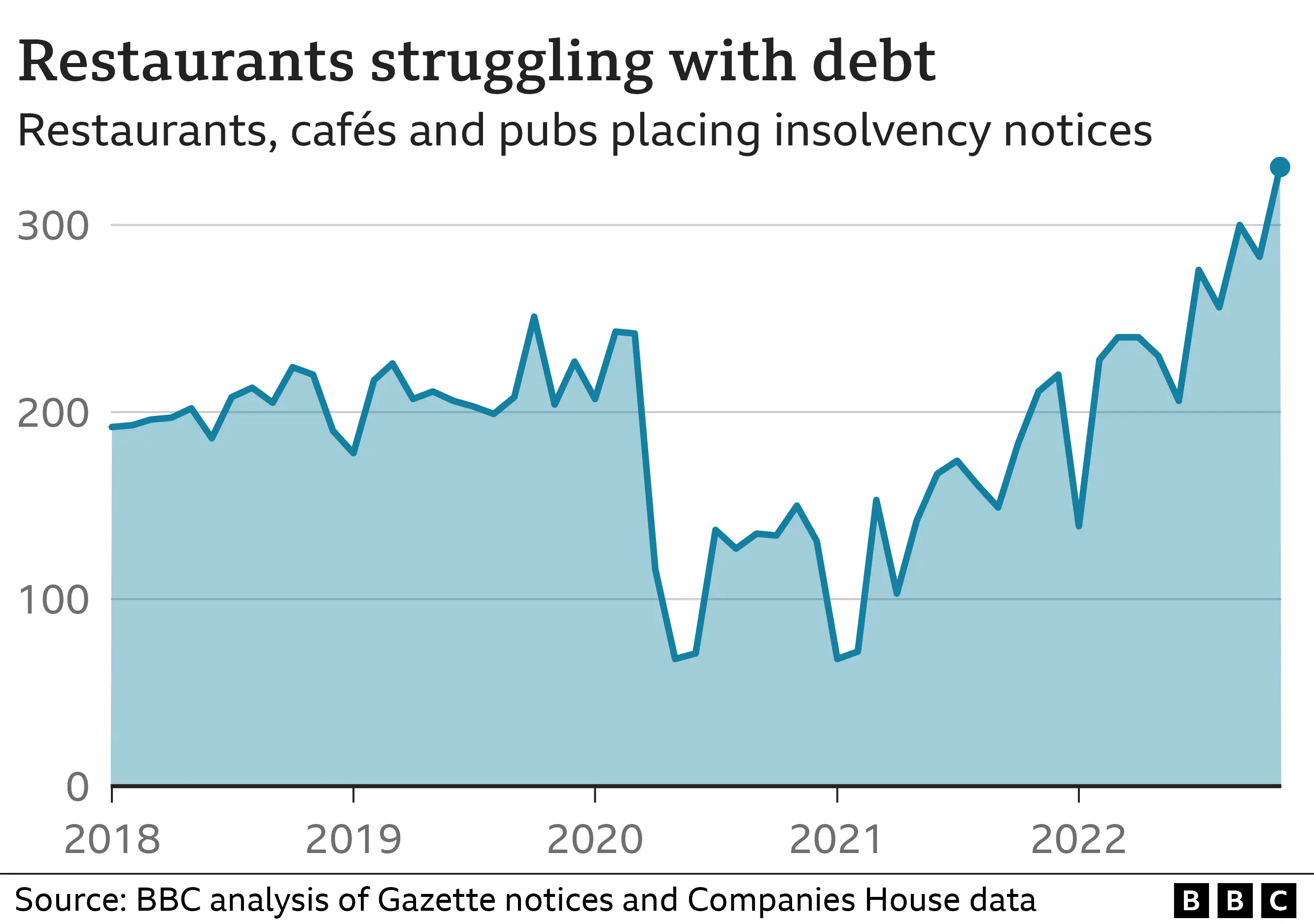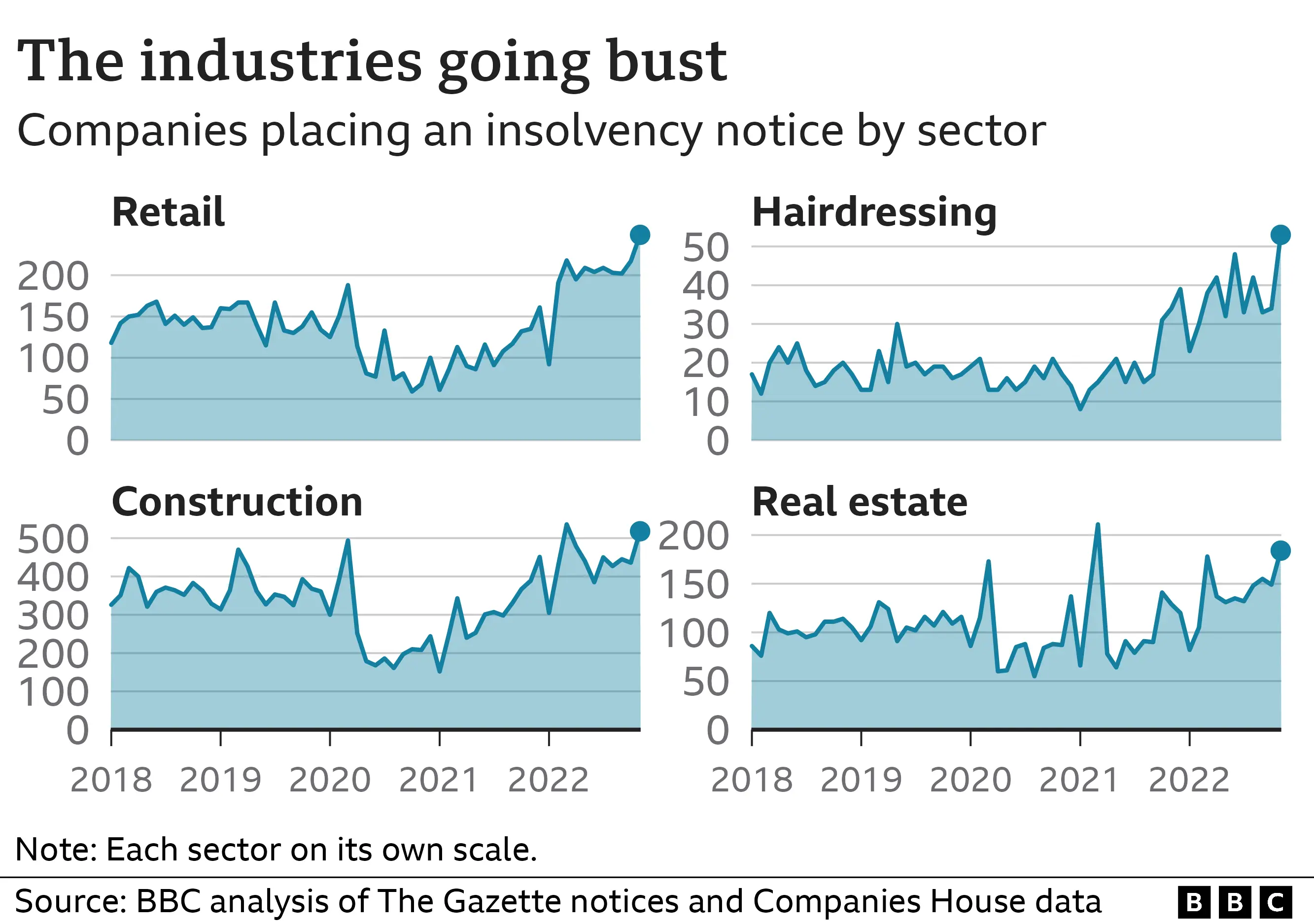Cost of living: If no one comes we close early, says pub
 BBC
BBCAt the Barn Pub near Rugby, the drinks are ready to be served, but unless lots of customers arrive, staff leave early.
"If no regulars come in, we close early," the chef says. "It costs to keep this building heated."
The Barn Pub is not alone. A survey from the British Beer and Pub Association, seen by the BBC, suggested most pubs are thinking of cutting down trading hours over the winter.
The industry is grappling with energy bills and staff shortages.
The family-run Barn Pub was forced to shut altogether between April and September this year because of a lack of staff.
Although it has now reopened, it's having to make some tough decisions due to rising bills.
On Mondays to Wednesdays, the pub now tends to close at 8pm rather than 10pm. On Thursdays, it's 10pm, rather than 11pm.
Fridays and Saturdays are unchanged, with the pub closing at its usual time of 11pm, although on Sunday it usually closes earlier now, at 8pm.
If no-one is there, and no regulars turn up, staff can close early, head chef Ben Stead-Davis told the BBC.
"At the end of the day, it does cost quite a bit of money to keep this building heated," he said.
Energy bills are the pub's biggest concern, with bills rising from £2,000 to £8,000 per month.
But other costs have also climbed, including food, he said.
The pub is looking forward to a busy Christmas, but might be forced to close for one day of the week from January.
 Getty Images
Getty ImagesAs well as shorter opening hours, the Barn Pub has cut the hours it serves food to four days per week, including the weekend, down from seven.
When the kitchen is open, it's serving up new items, including a vegan version of a carvery, to try to keep people coming in.
Some local customers at the Barn Pub understand why the pub has made these decisions.
"It's very sad really, both for the customer and for the people that work here, that provide excellent service," one told the BBC.
"I understand why they're doing it, but you need a place to meet up, you need to get out, you need to participate with other people," another said.
The Barn Pub is one of many restaurants and pubs being forced to make tough decisions due to cost-of-living pressures.
A majority (86%) of UK pubs are considering reducing opening hours over the winter, a survey of nearly 4,500 pubs by the British Beer and Pub Association (BBPA) suggested.
The survey, which was shared exclusively with the BBC, suggested that almost the same number (85%) are thinking of closing altogether for one or two days a week.
However, some businesses are having to consider closing their doors permanently.
When a firm can't pay its bills, that is known as being insolvent.
A BBC analysis found that 331 food service firms - restaurants, cafés, pubs and catering companies - announced that they were insolvent in November.
This is an increase of 57% compared with a year ago, and 62% more than in November 2019, before the beginning of the Covid-19 pandemic.
In total, 6,293 hospitality firms have started insolvency proceedings since 2020.

Firms that can no longer pay debts must announce this by law in the Gazette, a newspaper of record.
Although not all of these firms will go out of business - some may manage to restructure or renegotiate how they pay back debts - more insolvencies points to a decline in the financial health of a sector.
In north-east England, the cost-of-living crisis has been worse than Covid-19. In the first 11 months of 2022, the number of restaurants and pubs going bust in the region rose by 41%, compared with 2019.
Hospitality firm insolvencies rose 38% in the East Midlands, 31% in north-west England, and 30% in the east of England.
Northern Ireland was the only area where insolvencies were substantially lower than in 2019.
And things may get worse before they get better.
Official figures show that nearly half of hospitality businesses say their turnover has gone down in early December compared with November. This is more than in any other sector.
Two-thirds of businesses expect the amount of money coming in to decrease again in January 2023, while more than half say there's a risk they'll become insolvent in the near future.
The hospitality sector is not the only one struggling. Retailers, hairdressers, builders and retailers have all seen a surge in insolvencies
Across the entire economy, insolvencies were 42% higher in November compared to the same month in 2019.

Earlier this week, the government announced it was extending the freeze on alcohol duty for another six months.
However, a decision on extending help for businesses facing soaring energy bills will now not be made until the new year.
The British Beer and Pub Association said more needs to be done to support the industry.
Its chief executive Emma McClarkin said pubs and brewers "are doing whatever they can to make ends meet as costs on everything continue to rise".
"Extending the freeze on beer duty will inject a much-needed flurry of festive cheer for our brewers and pubs but times are still incredibly tough," she said.
Soaring inflation and a severe labour shortage mean firms "are being pushed to breaking point", she said.
Publicans need extra support with energy bills, she added.
The government is "firmly" on the side of hospitality businesses at "a difficult time", a spokesperson said:
The Energy Bill Relief Scheme means some will pay less than half the predicted wholesale cost of energy this winter, and a business rates package worth £13.6bn over the next five years means falling rates bills, the spokesperson added.
